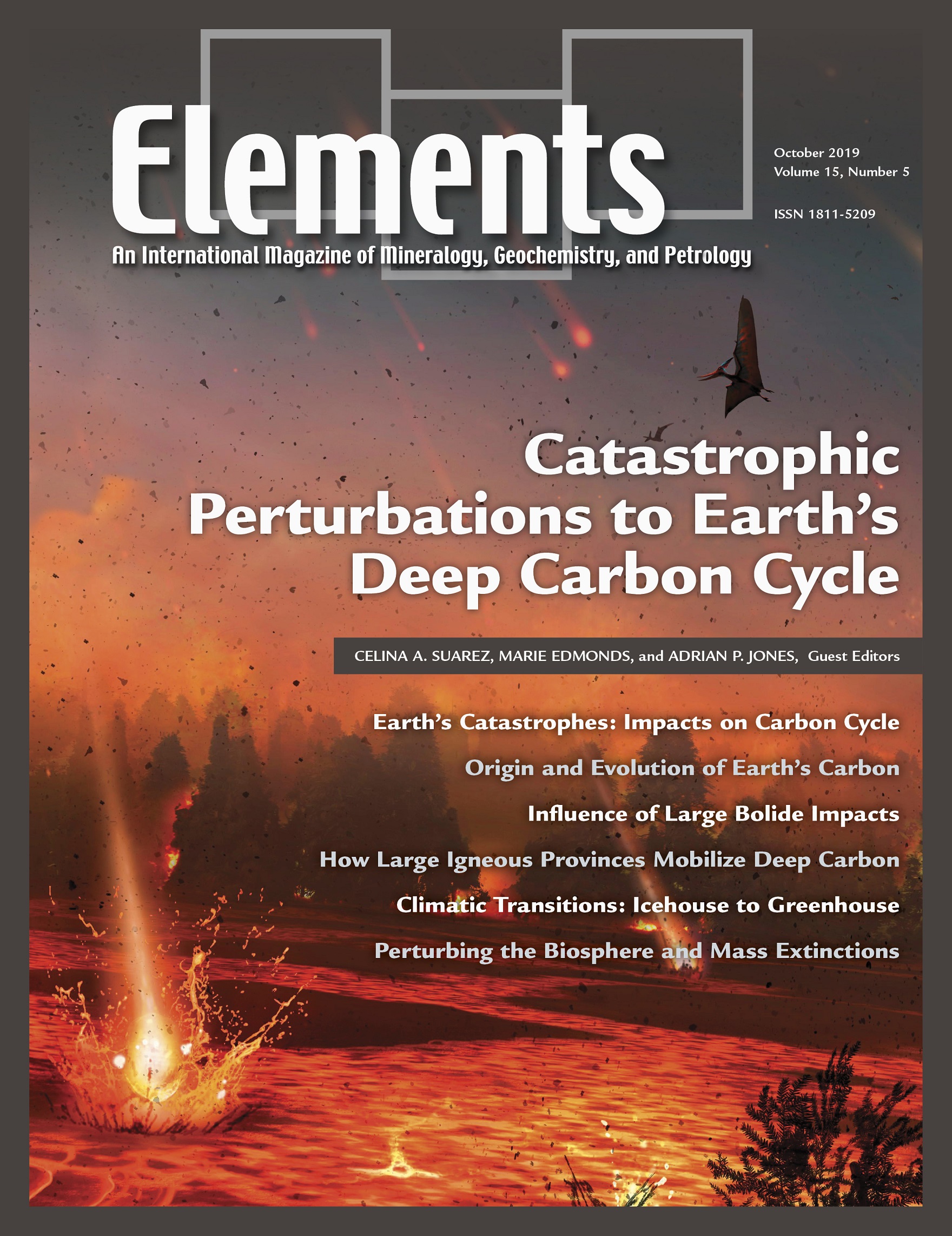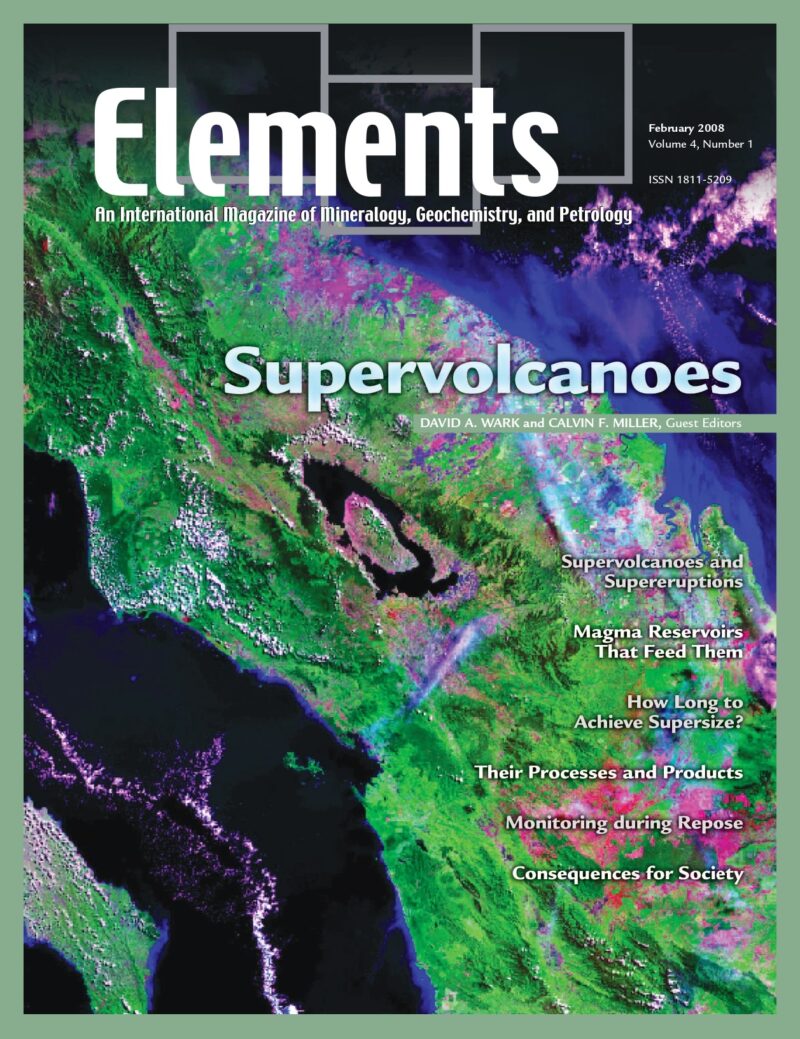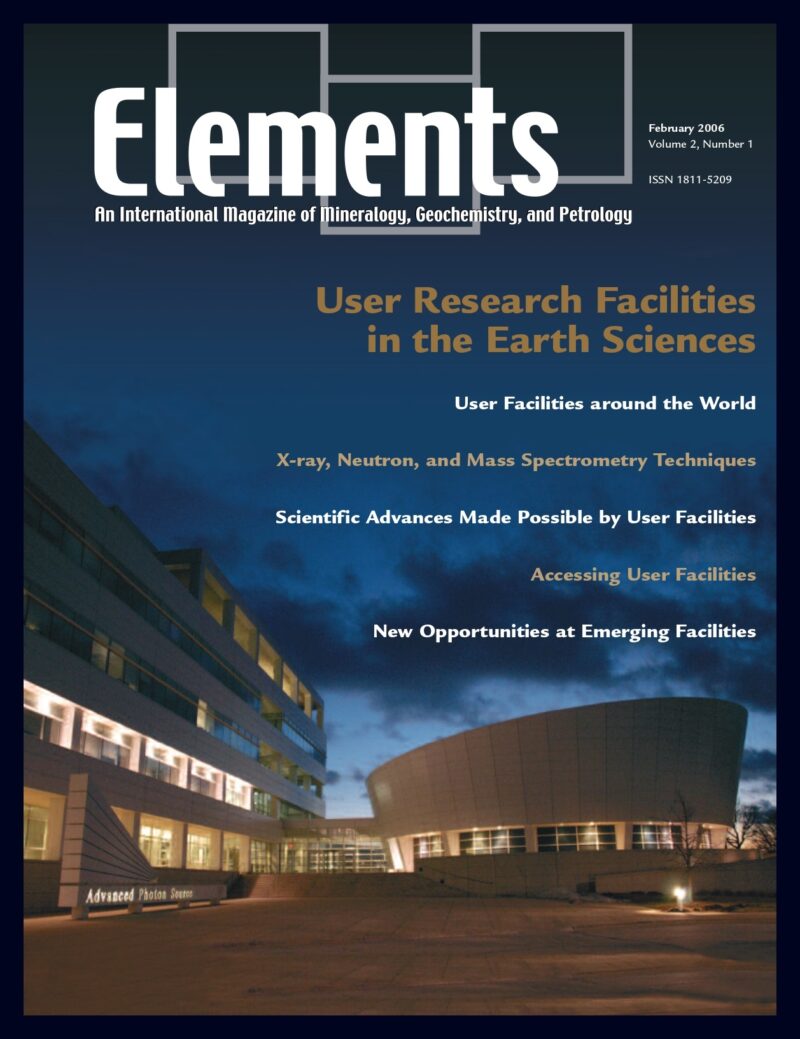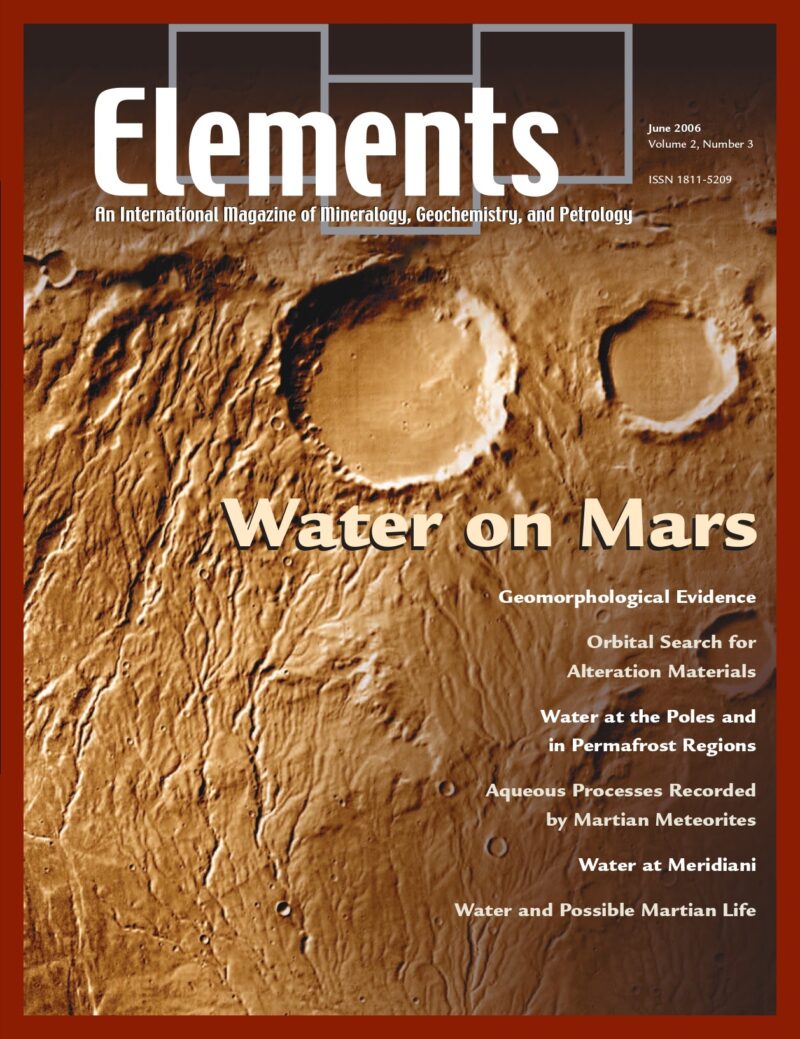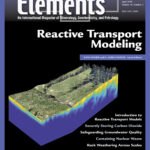
Reactive Transport Modeling, April 2019, Vol. 15, No. 2
June 28, 2024
Raman Spectroscopy In The Earth And Planetary Sciences, April 2020, Vol. 16, No. 2
June 28, 2024Catastrophic Pertubations To Earth’s Deep Carbon Cycle, October 2019, Vol. 15, No. 5
$20.00
Carbon is one of the most important elements on Earth. It is the basis of all life on the planet, is stored and mobilized throughout the Earth from core to crust, and is the basis of the energy sources that are so important to human civilization.
Catastrophic Pertubations To Earth’s Deep Carbon Cycle
October 2019, Vol. 15, No. 5
Carbon is one of the most important elements on Earth. It is the basis of all life on the planet, is stored and mobilized throughout the Earth from core to crust, and is the basis of the energy sources that are so important to human civilization. This issue explores the origins of carbon on Earth; the long-term carbon cycle; catastrophic and large-scale perturbations to Earth’s carbon cycle such as large igneous provinces and bolide impacts; carbon’s role in mass extinctions; and icehouse–greenhouse climate transitions in deep time. Deciphering the complex, and often faint, signals of distant carbon catastrophes requires a multidisciplinary effort and the most innovative analytical technology. This thematic collection comes at an important time in which carbon fluxes on Earth are changing rapidly. Society must understand the way in which the deep carbon-cycle on Earth works to secure a sustainable future.
Why You’ll Love Elements Magazine:
- Expert Contributors: Articles written by renowned researchers in the field of geoscience.
- Engaging Content: Join a community of readers who are passionate about Elements.
- Exceptional Quality: Each issue is printed on high-quality paper with stunning visuals and detailed illustrations that bring complex scientific concepts to life.
Order your copy of the October 2019 issue of Elements magazine today and explore catastrophic perturbations to Earth’s deep carbon cycle.
Related products
-
Supervolcanoes, February 2008, Vol. 4, No. 1
$20.00Explosive super-eruptions from large volume, shallow magma systems lead to enormous and devastating pyroclastic flows, the formation of gigantic collapse calderas, and deposition of volcanic ash over continent-sized areas. Recognition that future eruptions from these “supervolcanoes” will undoubtedly have severe impacts on society—and perhaps on life itself—has led to recent public and media interest.
-
User Research Facilities In The Earth Sciences, February 2006, Vol. 2, No. 1
$20.00Earth scientists rely on effective access to user research facilities that provide state-of-the-art analytical instrumentation. This thematic issue focuses on some of these facilities and how to use them.
-
Water On Mars, June 2006, Vol. 2, No. 3
$20.00During the past several decades, spacecraft data have transformed the planets from astronomical objects into geologic worlds. Mars is the current focus of planetary exploration, and NASA’s objectives for this effort are based on the theme, “follow the water.

